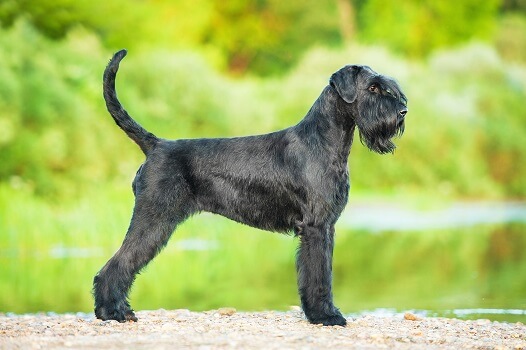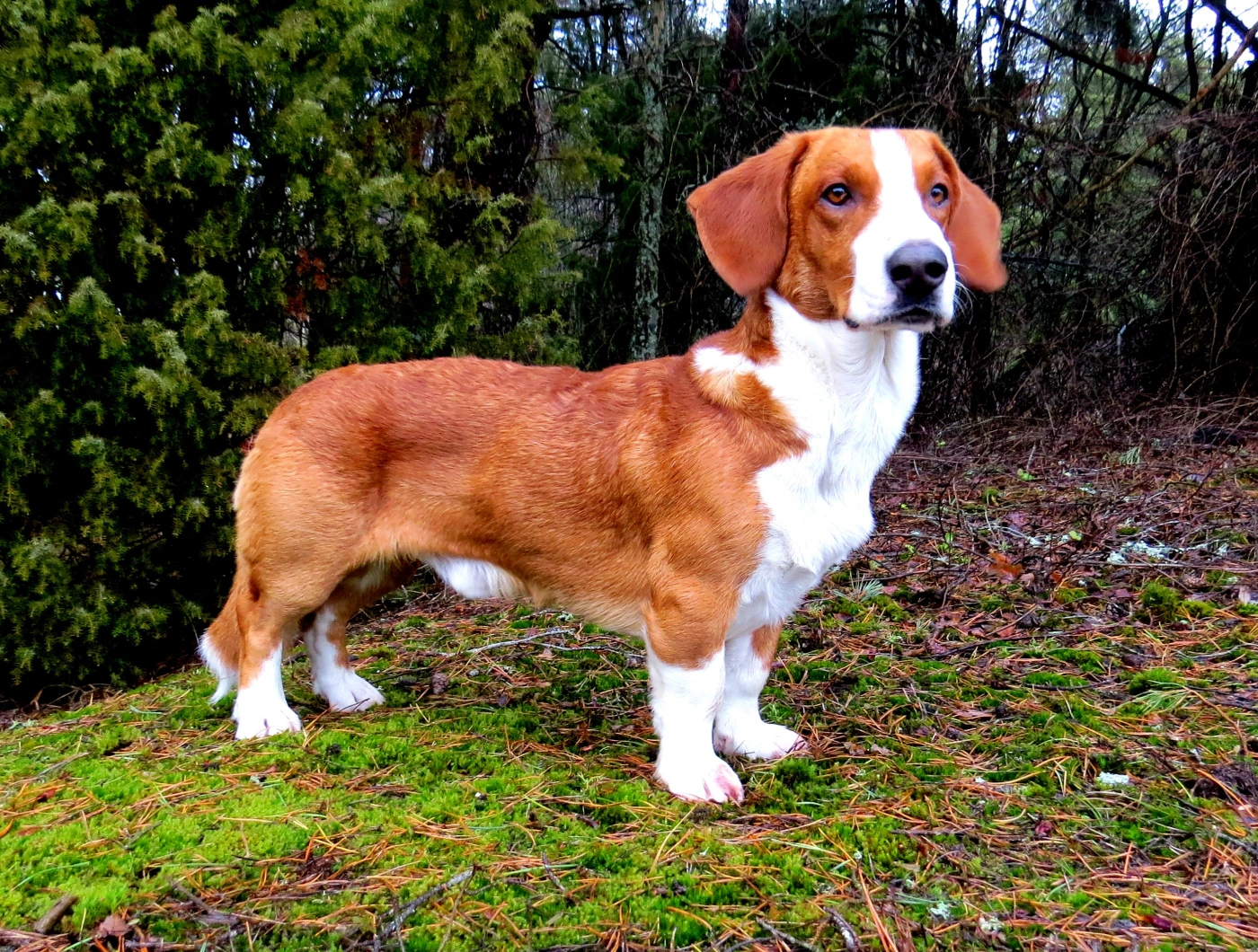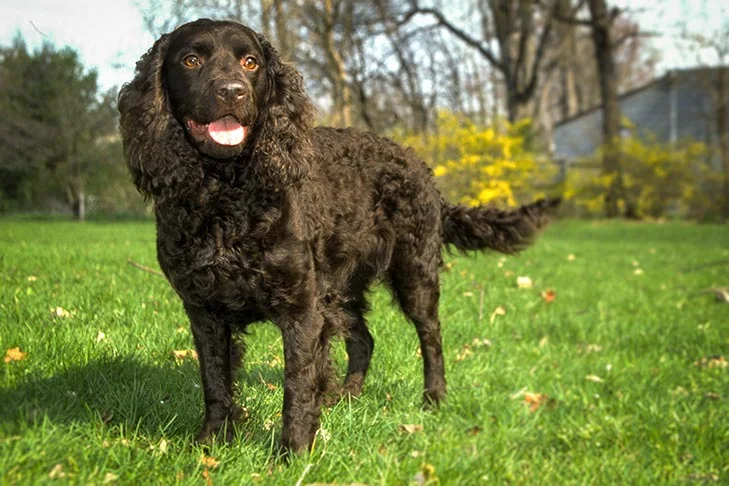Introduction
The Giant Schnauzer is a large and powerful dog breed that originated in Germany. They were initially bred to be working dogs on farms, and later on as guard dogs and police dogs. The breed is known for their intelligence, loyalty, and protective nature, making them an excellent companion for experienced dog owners who are willing to provide them with proper training and socialization.
Giant Schnauzer Temperament
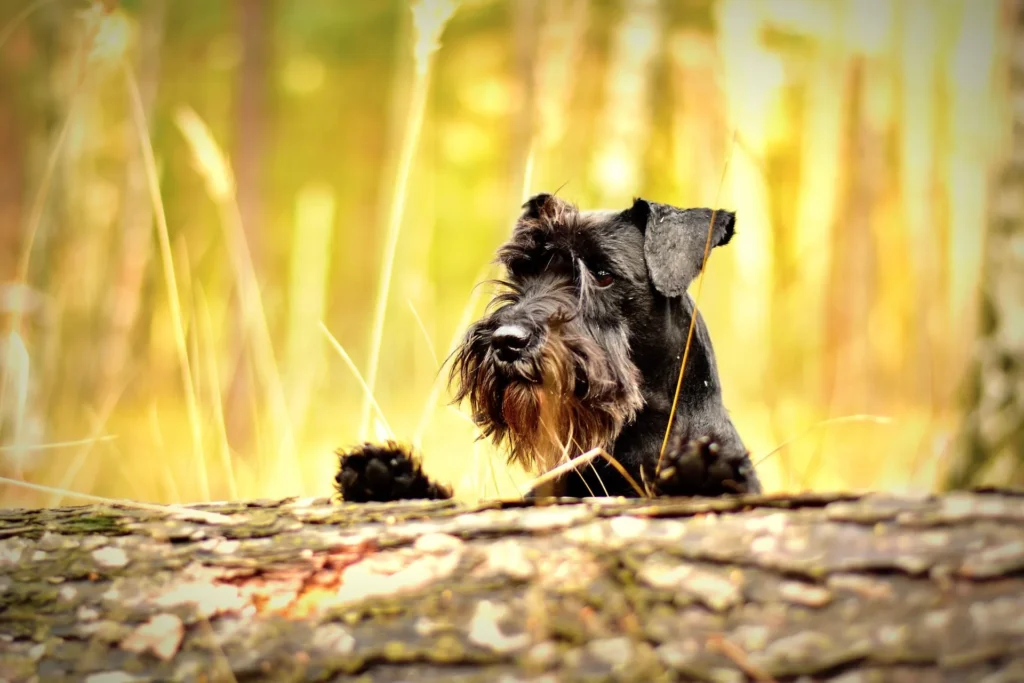
The Giant Schnauzer is a confident, loyal, and intelligent breed. They are known for being protective of their family and make excellent watchdogs. They are also energetic and require regular exercise and mental stimulation to keep them happy and healthy. With proper training and socialization, Giant Schnauzers can be friendly and affectionate with their family and other pets. However, they can be reserved or even aggressive with strangers or other dogs if not properly socialized.
Aggression
Giant Schnauzers are generally not an aggressive breed, but they can exhibit aggressive behavior if they are not properly socialized, trained, or if they feel threatened or protective of their family. Some common triggers for aggressive behavior in Giant Schnauzers include lack of exercise or mental stimulation, territorial behavior, and fear or anxiety. It’s important to provide proper socialization and training to Giant Schnauzers from a young age to prevent aggressive behavior. If your Giant Schnauzer is exhibiting aggressive behavior, it’s best to seek the help of a professional trainer or behaviorist to address the underlying issues.
Health and Lifespan
The reported lifespan range of the Giant Schnauzer is between 10 to 12 years. However, like all breeds, individual lifespan can vary based on various factors such as genetics, diet, exercise, and overall health care.
Food for Giant Schnauzer
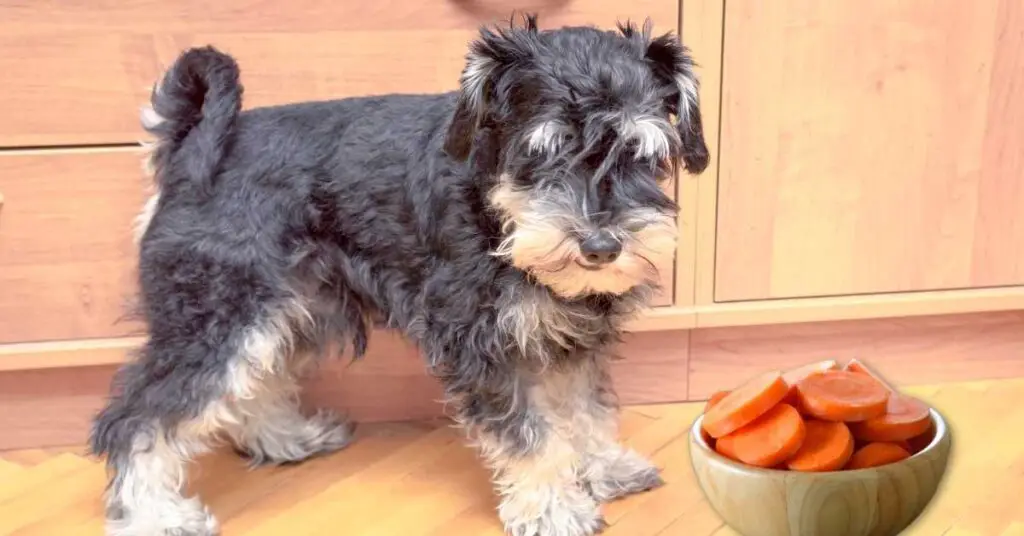
As a large breed dog, Giant Schnauzers require a high-quality diet that provides the right balance of protein, fat, and carbohydrates. Look for a commercial dog food that lists a high-quality source of animal protein as the first ingredient and does not contain fillers or artificial preservatives. It’s also a good idea to choose a dog food that includes glucosamine and chondroitin to support joint health. You may also consider a grain-free or limited ingredient diet if your Giant Schnauzer has any food sensitivities or allergies. As always, it’s important to consult with your veterinarian to determine the best food for your specific dog.
Training for Giant Schnauzer
Training a Giant Schnauzer requires patience, consistency, and positive reinforcement techniques. They are highly intelligent and eager to please, but can be independent and stubborn at times. Early socialization is important to prevent any potential aggressive tendencies towards strangers and other animals. Obedience training should start at a young age and continue throughout their life to reinforce good behavior and prevent any undesirable behaviors such as jumping or excessive barking. Regular exercise and mental stimulation are also important for their overall well-being. As with any breed, it is important to tailor training to the individual dog’s personality and needs.
Conclusion
The Giant Schnauzer is a versatile and intelligent breed that requires proper training, socialization, and nutrition to thrive. Their size and energy levels demand a diet that is high in protein and well-balanced to support their overall health. With adequate exercise, veterinary care, and a nutritious diet, the Giant Schnauzer can make a loyal and loving companion for the right owner.
